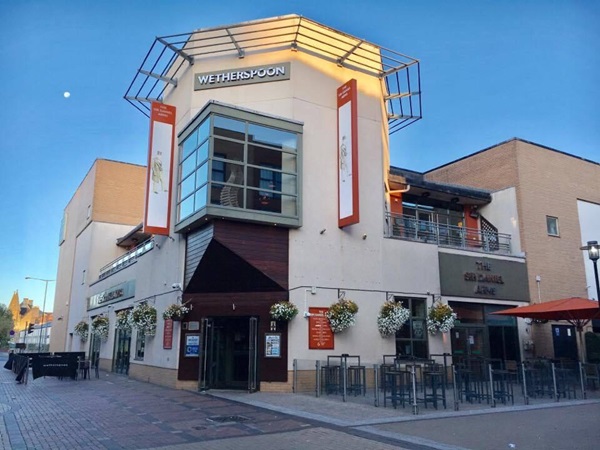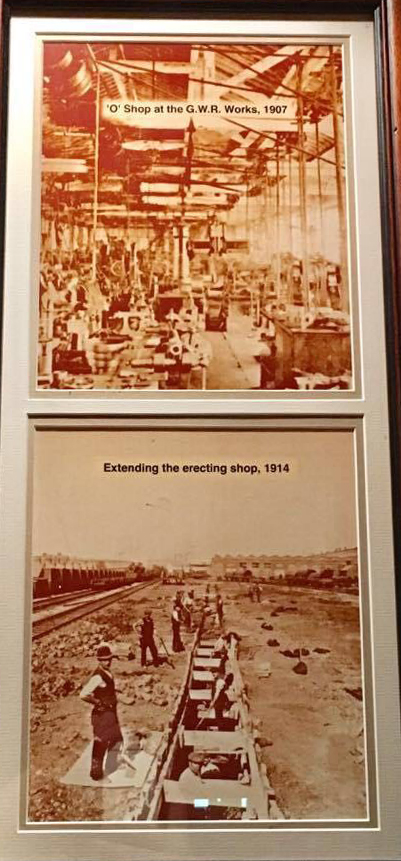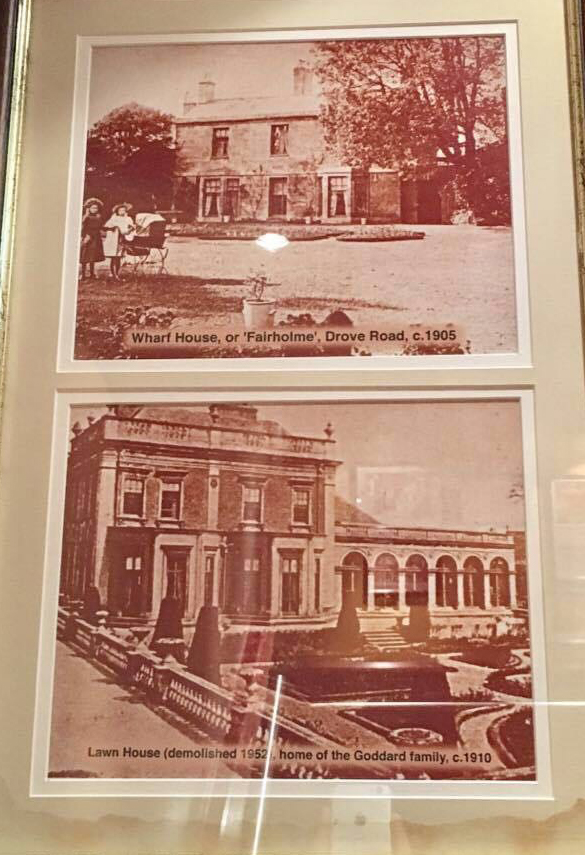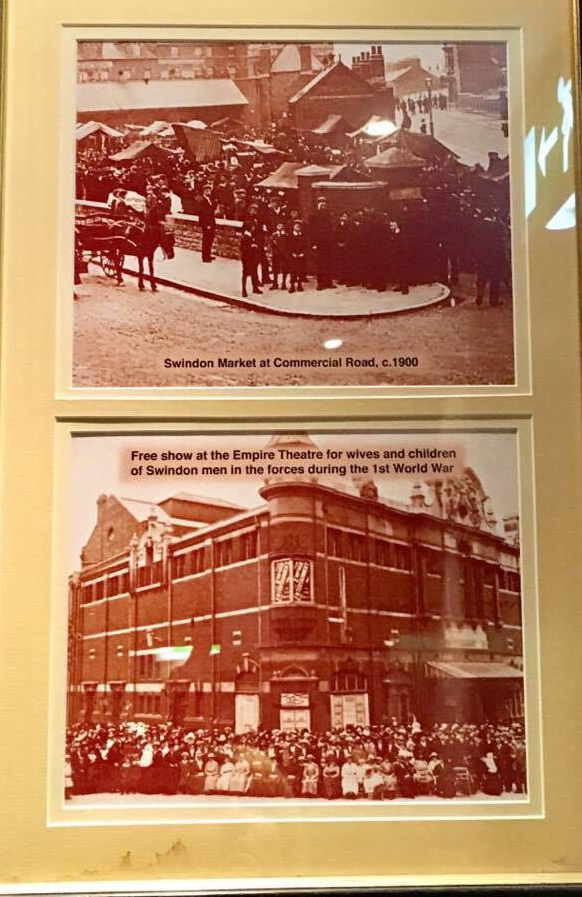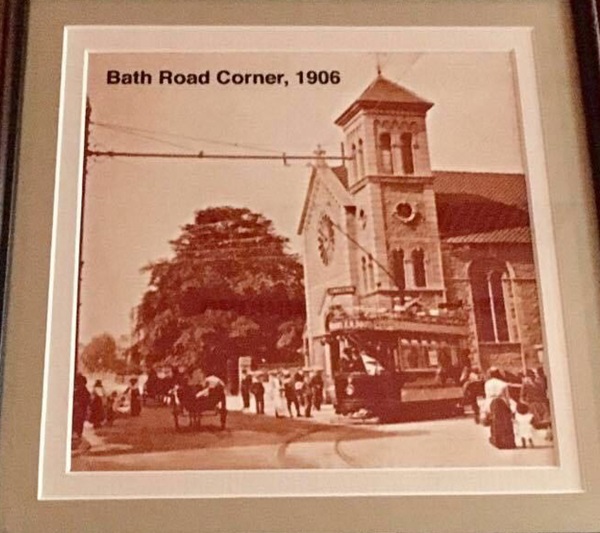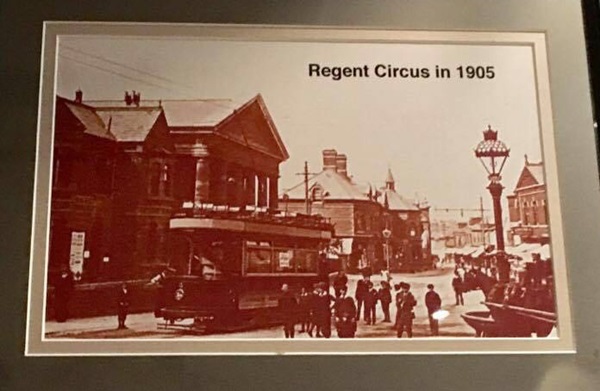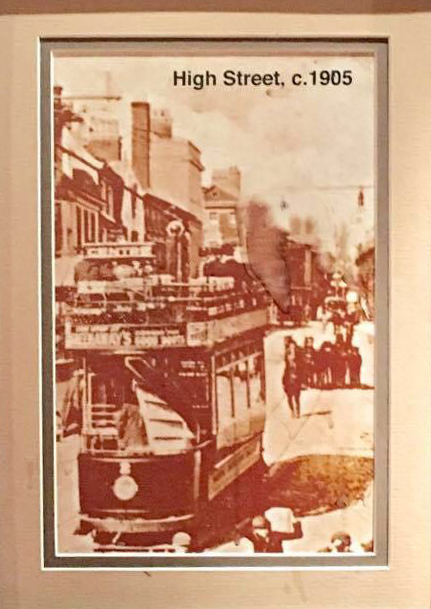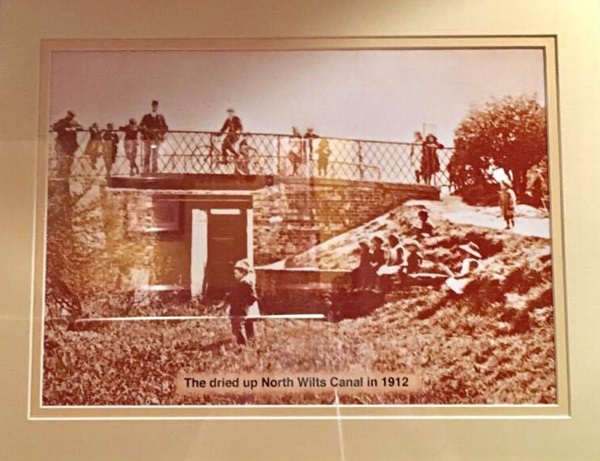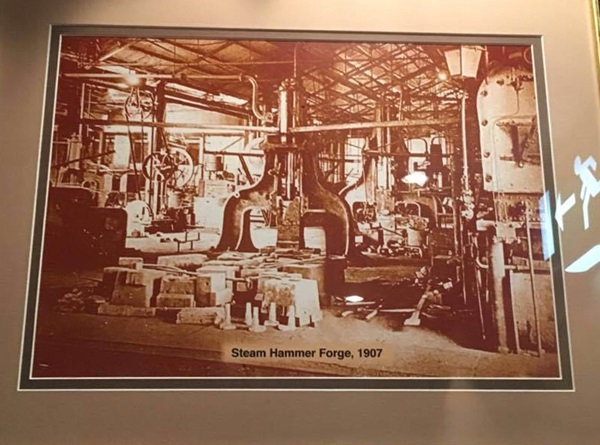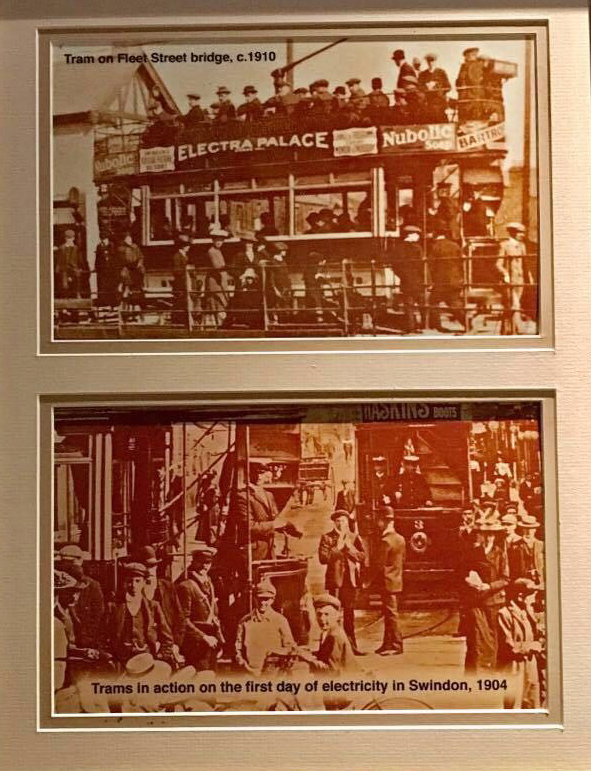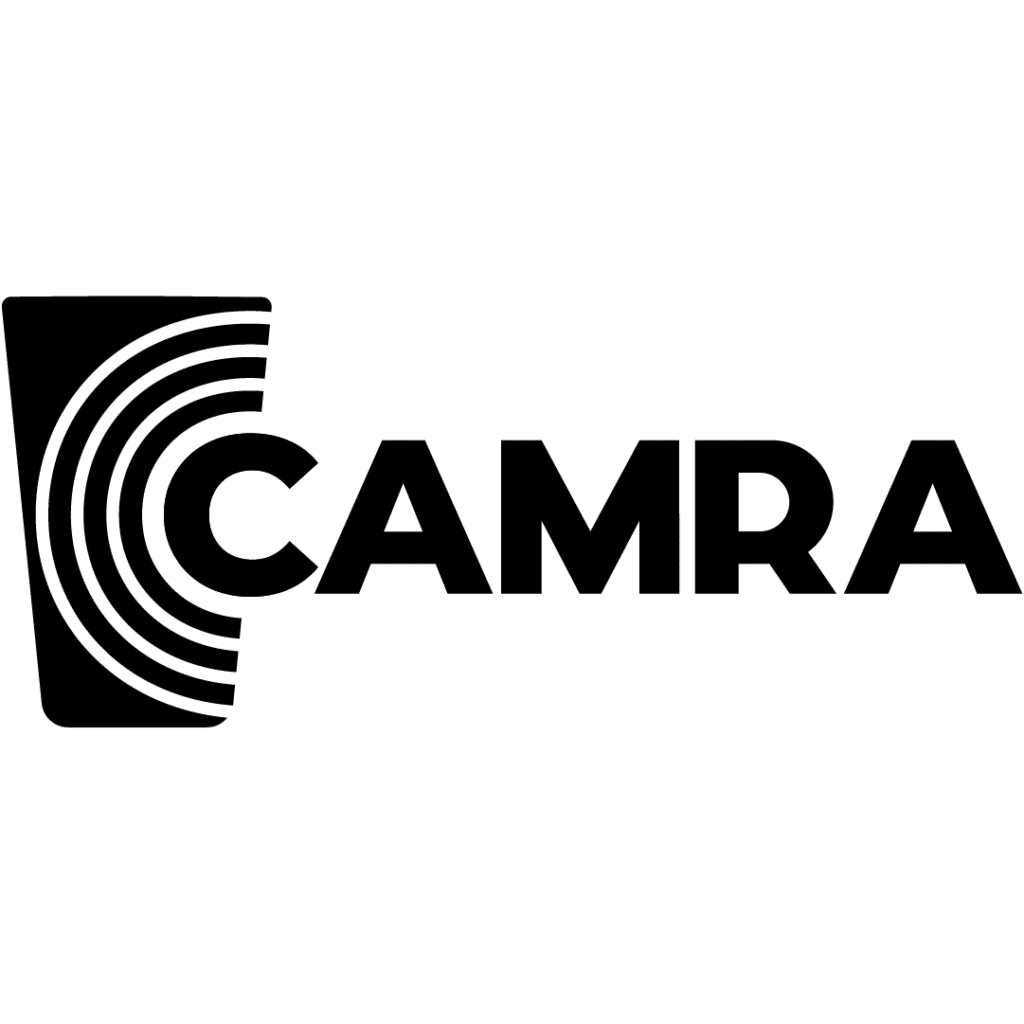Pub history
The Sir Daniel Arms
This modern building stands on the site of a row of small shops, 1–10 Fleet Street. They served the adjacent railway village which was built by the Great Western Railway in the mid 19th century. The row included the Sir Daniel Arms, which traded until the 1980s, and was named after Sir Daniel Gooch. He proposed that the Great Western Railway Works should be built in Swindon and then ran the works which subsequently dominated Swindon for nearly 150 years.
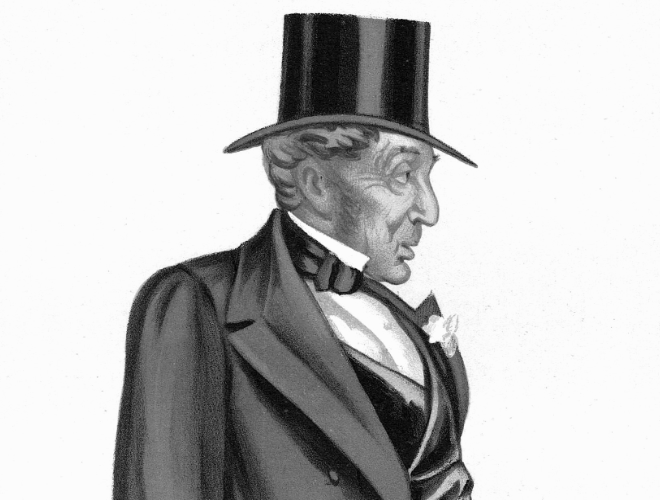
Fleet Street, Swindon, Wiltshire, SN1 1RQ
This modern building stands on the site of a row of small shops, 1–10 Fleet Street. They served the adjacent railway village which was built by the Great Western Railway in the mid-19th century. The row included the Sir Daniel Arms, which traded until the 1980s, and was named after Sir Daniel Gooch. He proposed that the Great Western Railway Works should be built in Swindon and then ran the works which subsequently dominated Swindon for nearly 150 years.
Photographs and text about Alfred Williams.
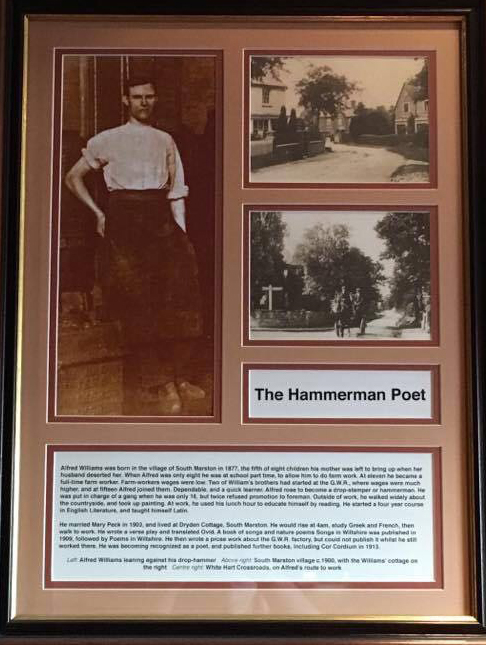
The text reads: Alfred Williams was born in the village of South Marston in 1877, the fifth of eight children his mother was left to bring up when her husband deserted her. When Alfred was only eight he was at school part time, to allow him to do farm work. At eleven he became a full-time farm worker. Farm-workers’ wages were low. Two of William’s brothers had started at the GWR, where wages were much higher, and at fifteen Alfred joined them. Dependable, and a quick learner, Alfred rose to become a drop-stamper or hammerman. He was put in charge of a gang when he was only 16, but twice refused promotion to foreman. Outside of work, he walked widely about the countryside, and took up painting. At work, he used his lunch hour to educate himself by reading. He started a four year course in English Literature, and taught himself Latin.
He married Mary Peck in 1903, and lived at Dryden Cottage, South Marston. He would rise at 4am, study Greek and French, then walk to work. He wrote a verse play and translated Ovid. A book of songs and nature poems Songs in Wiltshire was published in 1909, followed by Poems in Wiltshire. He then wrote a prose work about the GWR factory, but could not publish it whilst he still worked there. He was becoming recognised as a poet, and published further books, including Cor Cordium in 1913.
Left: Alfred Williams leaning against his drop-hammer
Above right: South Marston village c1900, with the Williams’ cottage on the right
Centre right: White Hart Crossroads, on Alfred’s route to work.
A photograph and text about Alfred William.
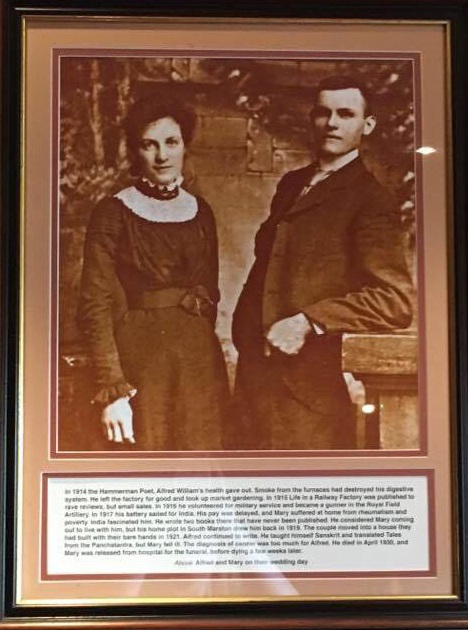
The text reads: In 1914 the Hammerman Poet, Alfred William’s health gave out. Smoke from the furnaces had destroyed his digestive system. He left the factory for good and took up market gardening. In 1915 life in a railway factory was published to rave reviews, but small sales. In 1916 he volunteered for military service and became a gunner in the Royal Field Artillery. In 1917 his battery sailed for India. His pay was delayed, and Mary suffered at home from rheumatism and poverty. India fascinated him. He wrote two books there that have never been published. He considered Mary coming out to live with him, but his home plot in South Marston drew him back in 1919. The couple moved into a house they had built with their bare hands in 1921. Alfred continued to write. He taught himself Sanskrit and translated Tales from the Panchatantra, but Mary fell ill. The diagnosis of cancer was too much for Alfred. He died in April 1930, and Mary was released from hospital for the funeral, before dying a few weeks later.
Above: Alfred and Mary on their wedding day.
An illustration, photograph and text about the Mechanics Institution.
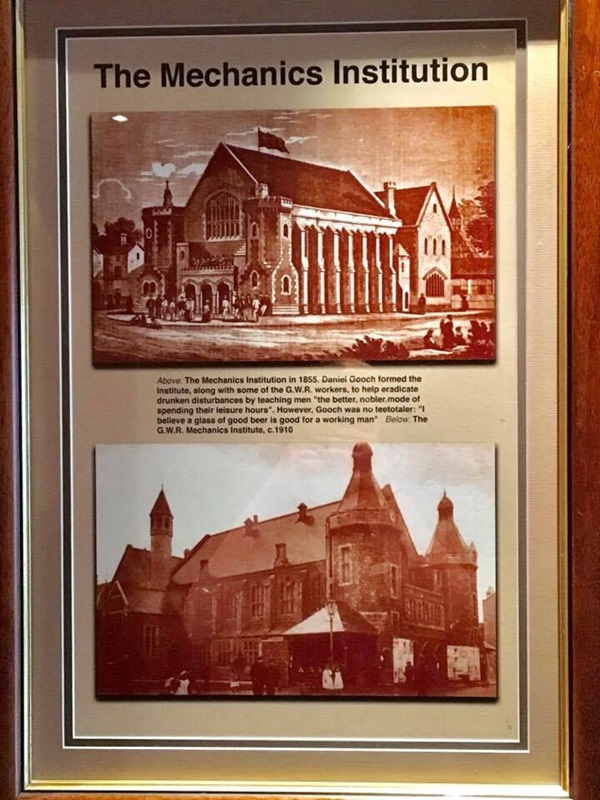
Above: The Mechanics Institution in 1855. Daniel Gooch formed the Institute, along with some of the GWR workers, to help eradicate drunken disturbances by teaching men “the better, nobler mode of spending their leisure hours”. However Gooch was no teetotaller: “I believe a glass of good beer is good for a working man”
Below: The GWR Mechanics Institute, c1910.
A photograph of GWR cash office, 1911.
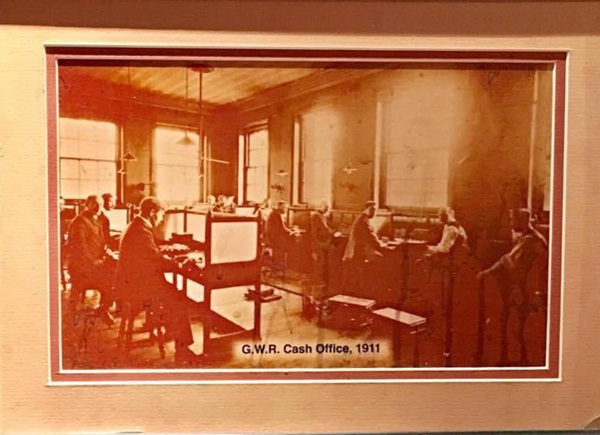
A photograph of GWR brass foundry, 1907.
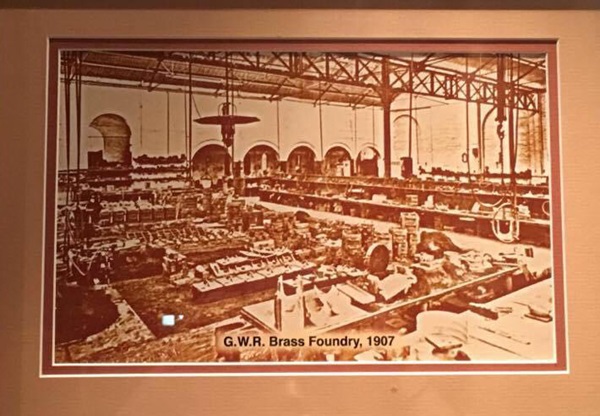
A photograph of women workers at Compton’s Factory where GWR uniforms were made, c 1910.
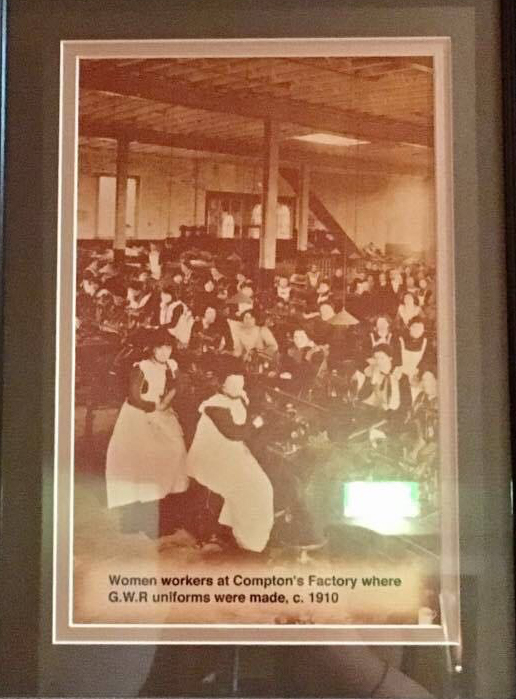
Photographs of the ‘O’ shop at the GWR Works, 1907, and extending the erecting shop, 1914.
A photograph of GWR Iron Foundry, 1907.
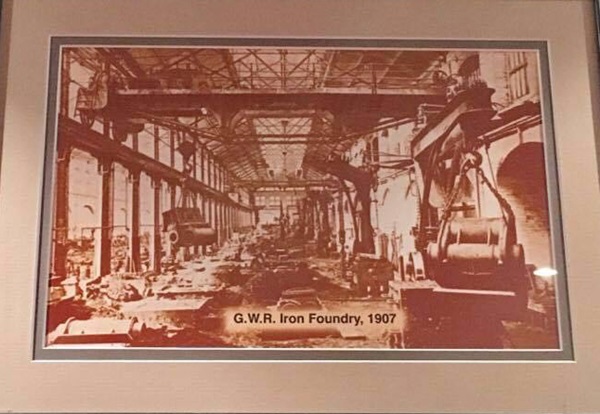
Photographs of Wharf House, or ‘Fairholme’, Drove Road, c1905 and Lawn House (demolished 1952), home of the Goddard family, c1910.
Photographs of Swindon Market at Commercial Road, c1900 and a free show at the Empire Theatre for wives and children of Swindon men in the forces during the 1st World War.
A photograph of Bath Road Corner, 1906.
A photograph of Regent Circus in 1905.
A photograph of High Street, c1905.
A photograph of the dried up North Wilts Canal in 1912.
A photograph of Steam Hammer Forge, 1907.
Photographs of a tram on Fleet Street bridge, c1910 and trams in action on the first day of electricity in Swindon, 1904.
A photograph of boating on Coate Reservoir in 1912.
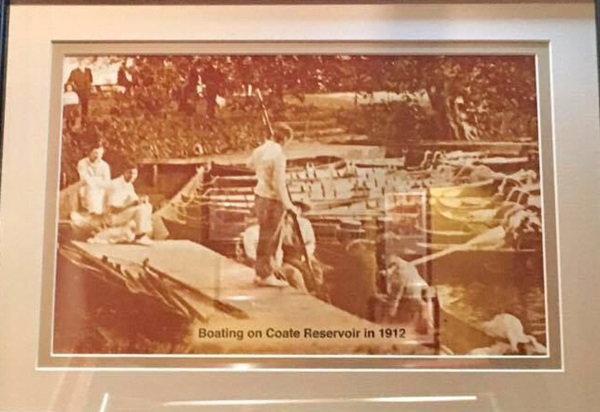
A photograph of Swindon Station, c1910.
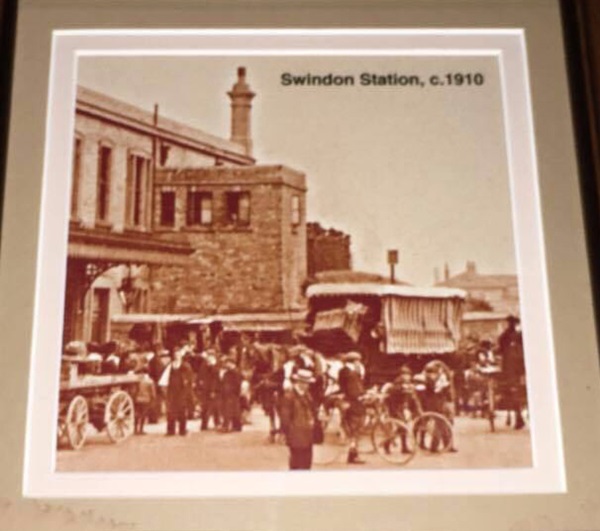
A steel sculpture entitled New Perspective, by Steve Des Landes.
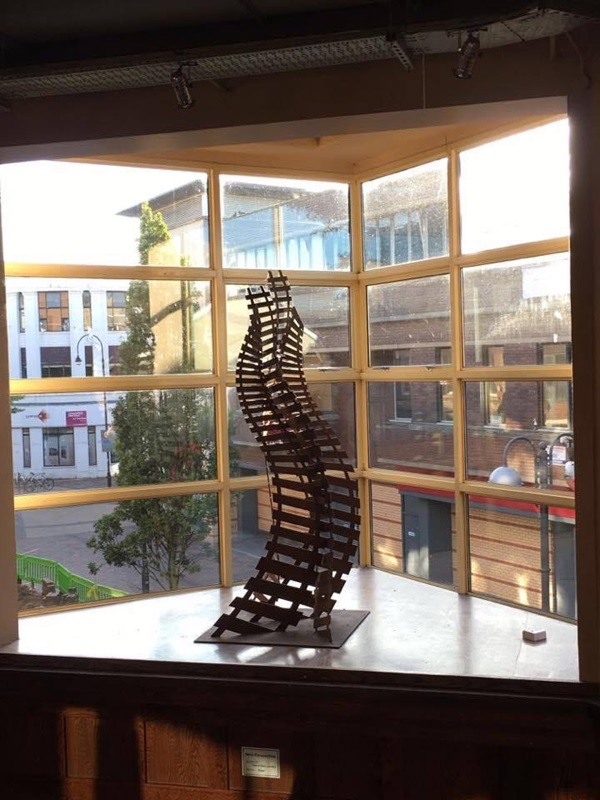
External photograph of the building – main entrance.
